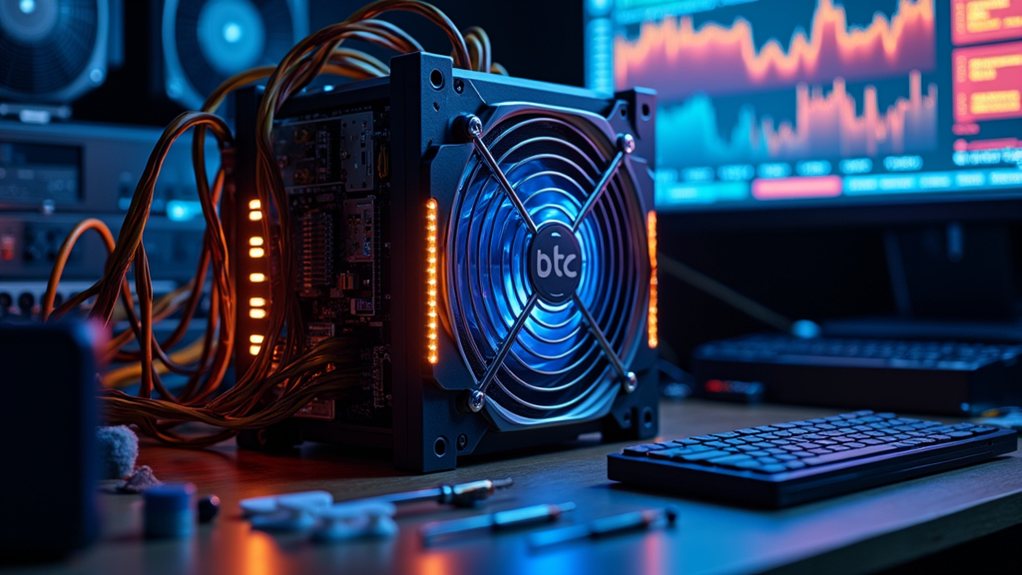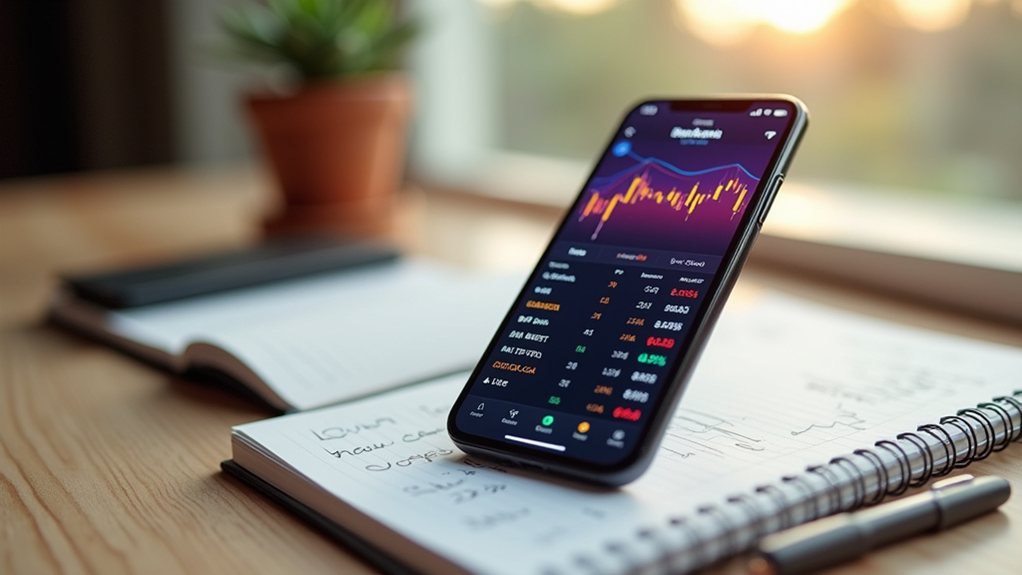Only 300,000 to 500,000 individuals own a full Bitcoin or more. That's less than 1% of all Bitcoin owners worldwide. Pretty exclusive club, smaller than Wyoming's population. About 95% of Bitcoin's entire supply sits with these whole-coin holders. Most owners? Males between 25-45, often tech geeks or finance bros. With Bitcoin's price tag exceeding $40,000, most folks settle for fractions instead. The wealth concentration is just the tip of the crypto iceberg.

While Bitcoin has captured global attention and billions in investment, the exclusive "1 BTC Club" remains shockingly small. Only about 300,000 to 500,000 individuals worldwide own a full Bitcoin or more. That's less than 1% of all Bitcoin owners. Let that sink in. A group smaller than the population of Wyoming controls substantial portions of the world's leading cryptocurrency.
The numbers tell an interesting story. Approximately 750,000 addresses hold at least 1 BTC, representing just 1.87% of all Bitcoin addresses. But addresses aren't people. One person might control dozens of wallets, while exchanges hold coins for millions of customers in a handful of addresses. It's a counting nightmare.
These 1+ BTC addresses collectively control about 95% of the entire Bitcoin supply. Talk about wealth concentration! But don't get it twisted—a large chunk sits in exchange and institutional wallets. Still, the Bitcoin-rich are exactly that: rich. At current prices, a single Bitcoin costs more than many people earn in months.
Who are these crypto-whales? Mostly men—no surprise there. Between 70-80% of whole-coin owners are male, typically between 25-45 years old. They're tech nerds, finance bros, and early adopters. The typical 1+ BTC holder is probably exactly who you're picturing right now.
The growth of this exclusive club continues steadily, though it's slowing down. As Bitcoin's price climbs, the barrier to entry gets steeper. What once cost a few hundred bucks now requires a serious financial commitment. Not everyone has $40,000+ lying around for internet money.
Counting these crypto enthusiasts precisely is basically impossible. Multiple addresses, exchange holdings, lost wallets, privacy features—all muddy the waters. For all anyone understands, thousands of would-be whales lost their keys years ago, their coins forever frozen on the blockchain. Oops.
In the broader crypto ecosystem, 1+ BTC owners are rare specimens. With an estimated 420 million global crypto users in 2024, the whole-coiners represent just 0.36% of participants. Most folks are playing with fractions—sats, not whole coins. Major platforms like Binance and Robinhood have made fractional ownership more accessible to millions of users worldwide. Even as Bitcoin has become the most popular cryptocurrency among American adults who own digital assets, whole-coin ownership remains an exclusive club.
The trend toward fractional ownership continues to grow. People are accumulating crumbs while institutions gobble up whole Bitcoin pizzas. It's democratization in slow motion. Or maybe it's just the new normal. Among the largest holders, Satoshi Nakamoto is estimated to own around 1 million BTC that remains largely untouched in their wallet.
Frequently Asked Questions
How Has the Number of "Whole Coiners" Changed Over Time?
Whole coiners have exploded in number since Bitcoin's inception.
Just Satoshi in 2009, then a measly 30,000 addresses by 2010.
Fast forward to 2013—boom—250,000 addresses.
The real surge came during the 2021 bull run, hitting around 800,000.
Now? Over a million addresses hold at least one Bitcoin.
January 2024 saw an all-time high of 1,024,000.
Not too shabby for a "dying" currency, huh?
Is Owning 1 Bitcoin Considered Wealthy in the Crypto Community?
Owning 1 Bitcoin? Definitely a status symbol in crypto circles.
"Whole coiners" sit in the top 2.3% of addresses – pretty exclusive club.
But wealthy? That's complicated. At $40k per coin, it's about a year's median US income. Nice chunk of change, sure, but hardly private-jet territory.
Perception varies wildly depending on where you live and when you bought in.
For crypto diehards though? That full Bitcoin is bragging rights.
What Percentage of Bitcoin Holders Own Exactly 1 BTC?
The exact percentage of holders owning exactly 1 BTC isn't clearly documented.
Statistics typically group addresses in ranges like "1 BTC or more" (1.87% of addresses) or "between 0.1 and 1 BTC" (8.45%).
Complicating matters? One person can own multiple addresses. Exchanges hold coins for numerous users. Some bitcoins are permanently lost.
The "exactly 1 BTC" club? Probably tiny. Bitcoin's wealth remains heavily concentrated among whales.
How Difficult Is It for Average People to Acquire 1 Bitcoin?
Acquiring a whole Bitcoin is brutal for average folks. At $57,000, it exceeds the typical American's annual income.
Mining solo? Forget it—would take over a decade with standard equipment. Most people resort to small, regular purchases or earning bits through services.
Regulatory hurdles and security concerns make things worse. Like climbing Everest in flip-flops. Not impossible, just wildly impractical for the 9-to-5 crowd.
What Security Measures Do "Whole Coiners" Typically Use?
"Whole coiners" typically layer their security measures.
Hardware wallets reign supreme—Trezor and Ledger being fan favorites. Serious holders don't mess around. They implement multi-signature setups, requiring multiple keys to access funds.
Some paranoid types use air-gapped computers, never touching the internet. Smart ones diversify storage locations.
The more Bitcoin someone has, the more elaborate their security dance becomes. Nobody wants to be the idiot who lost their keys.








